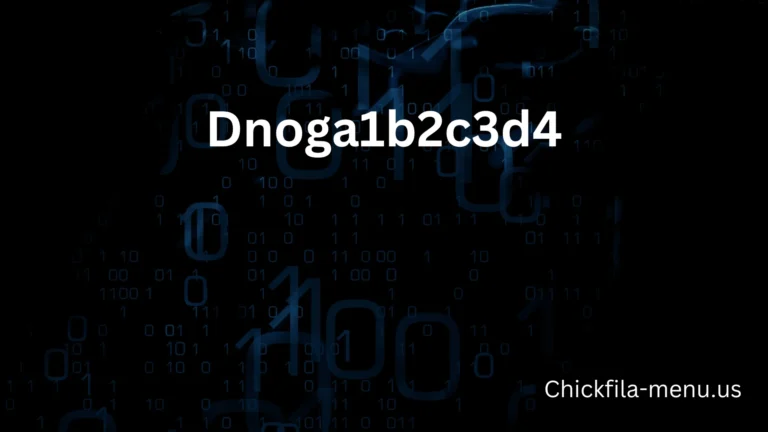185.63.253.2pp: The Things You Should Know
It appears that the IP address 185.63.253.2pp is a valid IPv4 address, but its “pp” suffix renders it invalid. However, it remains important to understand the reasons for this notation, as well as the concepts behind IP addressing. This article aims to clarify the basics of IPv4, as well as provide guidance on identifying valid IP addresses.
| Category | Details |
| IP Address: Medium to High (depending on context) | 185.63.253.2 |
| Label/Domain | The IP address 185.63.253.2pp is not a standard DNS/IP address. |
| The type | Addresses for IPv4 |
| Host Provider | The HostPalace DataCenters Ltd. |
| The location | The Netherlands, Lelystad, Flevoland |
| Ranges and subnetworks | 185.63.253/24 185.63.253.0 |
| Ports associated with the port (pp) | This may suggest a proxy port (8080, 3128, etc.) or a private proxy (usually 8080, 3128, etc.). |
| Current status | The account is active (as of the last check). |
| Internet service provider | Hosting Palace Datacenters Ltd. |
| The use of | Hosting services, VPNs, and proxy servers are usually associated with data centers |
| Status of blacklisting | Depending on the listing, it may be flagged as a proxy/VPN activity in some listings |
| DNS reverse | Officially unavailable or not configured |
| Common Use Cases | Private proxies, web scraping, VPN tunneling, and server hosting services |
| Online for the first time | The event is expected to occur between 2021 and 2022, according to public records. |
| Risk Level for Privacy | (Depending on usage context) Medium to High |
185.63.253.2pp: History and Evolution
As an example of the growth of internet technology, the IP address 185.63.253.2pp became a part of the larger digital communication ecosystem after being assigned to several hosting companies.
With the demand for online services, certain IP addresses, such as 185.63.253.2pp, began to be used in proxy services and content delivery networks.
Since it has become synonymous with virtual private networks (VPNs) and cloud-based apps, this sequence has proven adaptable to today’s networking needs.
Privacy issues and the need to safeguard data, which coincided with improvements in cybersecurity safeguards, resulted in the address becoming more important.
Customers are increasingly seeking safe connections across corporate networks and gaming servers today, proving its versatility. As evidenced by their evolution from basic identifiers to multifunctional tools, such addresses are crucial to our digital ecology.

The 185.63.253.2pp IP address format is invalid
This IP address is invalid due to the presence of the “pp” at the end. IPv4 addresses are strictly numeric. Here are some possible reasons why you might see such a string:
- There are several reasons why this can happen, including typographical errors. Perhaps the user meant to type a different number or accidentally added the “pp.” Mistakes happen, especially when entering IP addresses manually.
- Adding “pp” to the address may be a deliberate way to ensure it never appears as a valid address when developers document network configurations or write scripts.
- It is possible for data corruption to result in this invalid format when data is corrupted during transmission or storage.
- It is possible that the “pp” could be a deliberate attempt to obscure a real IP address, perhaps to prevent automated scraping or scanning. This isn’t a very effective security method.
- PP error in custom software: Bugs in custom software or scripts could introduce the “pp” suffix inadvertently.
There is no reason to use 185.63.253.2pp in any network environment, no matter what the reason may be.
Also check: Skillmachine Net
How to decode valid IP addresses in IPv4
185.63.253.2pp is invalid for the following reasons:
- IPv4 addresses are 32-bit numbers written in dotted decimal notation, which consists of four decimal octets separated by periods (dots). Each octet represents 8 bits of the 32-bit address.
- There are four numbers in an IPv4 address, each ranging from 0 to 255 inclusive, separated by a period: 192.168.1.1, 10.0.0.5, 172.16.0.1.
- IP addresses are traditionally categorized into classes (A, B, C, D, and E). Although the class system has largely become obsolete, the address ranges associated with these classes still have relevance for IP address allocation. A Class A address has the first octet between 1 and 126, a Class B address has the first octet between 128 and 191, and a Class C address has the first octet between 192 and23.
- An IP address range can either be private or public. Private IP addresses are used within private networks (such as your home or office network) and cannot be routed on the public internet. Common ranges include:
- The range of 10.0.0.0 to 10.255.255.255
- From 172.16.0.0 to 172.31.255.255
- Between 192.168.0.0 and 192.168.255.255
- A public IP address, on the other hand, is a unique one that can be used to communicate across the internet.
IP addresses must be number-based between 0 and 255 to be valid. 185.63.253.2pp’s “pp” violates this rule immediately.
An overview of IPv4 and IPv6
For decades, IPv4 addresses (like 192.168.0.1) were the most common. However as the internet grew, these numbers ran out. IPv6 addresses were introduced with a much wider range.
IPs and Your Everyday Life
What makes ads know where you are? Or why websites block access from certain countries? That’s all down to IP addresses. They’re powerful tools, for better or worse.
Can You Tell Me if This Is a Real IP or Just a Placeholder?
The “185.63.253.2” part looks like an IPv4 address. But the “pp” isn’t standard. IP addresses don’t usually end in letters.
How Could “pp” Be Meaningful?
It could stand for proxy port, private proxy, or even peer-to-peer protocol. The term may be used internally or in technical circles to indicate a certain configuration.
The most common misconceptions about IP naming conventions
There is often confusion between DNS names, ports, and IP addresses. Suffixes like “pp” can lead to misinterpretation, unless you’re working in a very niche tech space or debugging software.
Cybersecurity and Privacy: IP Addresses
IP Exposure: How to Protect Your Identity
It is possible for cybercriminals to use your IP address to narrow in on your identity or launch attacks based on your approximate location and internet provider.
Secure Connections: Why You Should Use Them
Today’s digital jungle requires HTTPS, VPNs, and trusted proxies to secure your online activity.
You Need a VPN and a Proxy Server
Proxy servers and VPNs allow you to browse anonymously, access restricted content, and hide your true location.
Is this an IP address for a proxy?
Proxy servers: What Are They?
By using a proxy server, you can bypass your real IP address and use a proxy server’s IP address instead.
The Use of Proxies for Anonymity and Access
With proxies, you can access geo-blocked sites or protect your online identity. They’re like cloaks of invisibility.
Untrusted Proxies and Their Risks
Using free proxies can lead to your data being logged, ads being injected, or worse–acting as bait for hackers. Be careful.
Data Analysis of 185.63.253.2
The use of IP lookup tools
Try searching for “185.63.253.2” and see what comes up. There are several free tools online that you can use to get information about IP addresses such as the country, the internet service provider, and the city.
Information regarding the host’s location and geolocation
A specific IP block might be assigned to a data center, a hosting company, or a VPN service, depending on the owner.
What is the owner of this IP range?
The “185.x.x.x” range is usually associated with European hosting services. If “pp” is associated with a platform, it might indicate a proxy pool or internal identification.
Is PP a proxy port or a platform?
Networking port protocols
IP addresses are determined by their ports, such as Port 80 for HTTP or Port 443 for HTTPS. Maybe “pp” indicates a specific port or private proxy.
Could it be a peer proxy or a private port?
It depends on context whether “pp” means Peer Proxy or something obscure like “Parallel Processing.”
Functionality Hints from Suffixes
As long as we don’t have full context, we’re left to decode the suffixes. 185.63.253.2pp.servername.com is a typical example of an internal server reference.
IP Address Validation and Troubleshooting
Check an IP address for validity and troubleshoot any issues you encounter:
- An easy way to check an address is to visually inspect it. Do all four octets have numbers? Do these numbers fall within the range of 0 to 255? A non-numeric address immediately indicates an invalid format, as we saw with 185.63.253.2pp
- Many online tools can validate IP addresses, including online IP address validators. When you enter an address into the tool, it will tell you whether it’s a valid IPv4 or IPv6 address (and possibly provide other information, such as the location of the address, if it’a public address). You can find a number of useful options by searching for “IP address validator.”.
- Network diagnostics can be performed using command-line tools provided by operating systems.
- While ping won’t check the format of an IP address, it attempts to send ICMP echo requests to it. If the address is valid, you’ll receive a response. A failure to ping the address does not necessarily indicate that it is invalid; it could indicate a firewall blocking ping requests or a problem with network connectivity
- NSlookups and digs are primarily used for resolving domain names to IP addresses, but can also be used to check if a potentially valid IP address is associated with a known domain. The DNS system will not resolve IP addresses if they are not configured correctly
- Examine your network configuration settings if you are experiencing network connectivity problems:
- Make sure IP Address, Subnet Mask, Gateway, and DNS Servers are configured correctly on your device or router. Incorrect settings are often the cause of network problems.
- A router uses DHCP to assign IP addresses to devices on your network. Make sure the router is configured properly to assign addresses within a valid range.
- Check your operating system or network applications for error messages. These messages often indicate what is wrong with your computer. An error message such as “Invalid IP address format” indicates that the IP address you entered is not formatted correctly
Examples and Use Cases from the Real World
Business Proxy Use
Proxy servers can be used to conduct market research, verify ads, or bypass georestrictions.
Hacking and penetration testing ethically
Proxies and anonymous IPs enable security pros to simulate attacks and detect weaknesses without revealing their location.
IP rerouting used by gamers and streamers
It is common for gamers and streamers to route traffic through proxies in order to reduce lag, avoid DDoS attacks, and get access to early server launches in other parts of the world.
IP Tools: The Dangers of Misuse
IP Masking and its Legal Implications
You can use proxies to bypass laws or commit fraud, but that’s another story. Stay within the law.
What Blacklisted IPs Mean
The IP address is blacklisted once it has been flagged as spam or malicious activity. Using such an IP may result in your emails being blocked or your accounts being restricted.
Traceability of cybercrime
Cybercriminals can eventually be traced back to their source even if they use proxies.
Keeping IP private and secure: Best Practices
Using a VPN or proxy provider you can trust
Avoid free tools that seem too good to be true. Read reviews, check policies, and stick with reputable providers.
Checking Your IP Status Regularly
Your IP can be checked with tools like IPVoid and AbuseIPDB. It’s like a credit check for your digital identity.
How to protect your digital footprint
Keep your passwords secure, avoid sketchy downloads, and always log out of public devices before you click.
Technology Futures – IPv6 and Beyond
Using new addressing systems to scale the web
The IPv6 standard arose out of necessity. With billions of devices connected online, we needed a system that could handle everything.
IPs that are dynamic versus those that are static
A dynamic IP address changes periodically. A static IP address is constant. Static IP addresses are often needed by businesses for reliability reasons.
IoT and smart devices
The internet has made everything online. This means more IPs and more scalability and security needs.
Accurate IP Addressing Is Crucial
A correct IP address is essential to network communication. If an IP address is incorrect or misconfigured, devices cannot communicate or access the internet. In spite of the obvious erroneousness of 185.63.253.2pp, it illustrates the need for vigilance in ensuring the accuracy of IP addresses in network configurations. Maintaining reliable IP addressing schemes is essential for maintaining a functional network environment.

Oliver Henry is a technology expert with a deep understanding of the latest innovations and trends shaping the digital landscape. As the publisher, he blends his passion for technology with a keen eye for detail, delivering content that informs and engages readers. Oliver’s work reflects his commitment to staying ahead of industry developments and providing valuable insights to tech enthusiasts.







